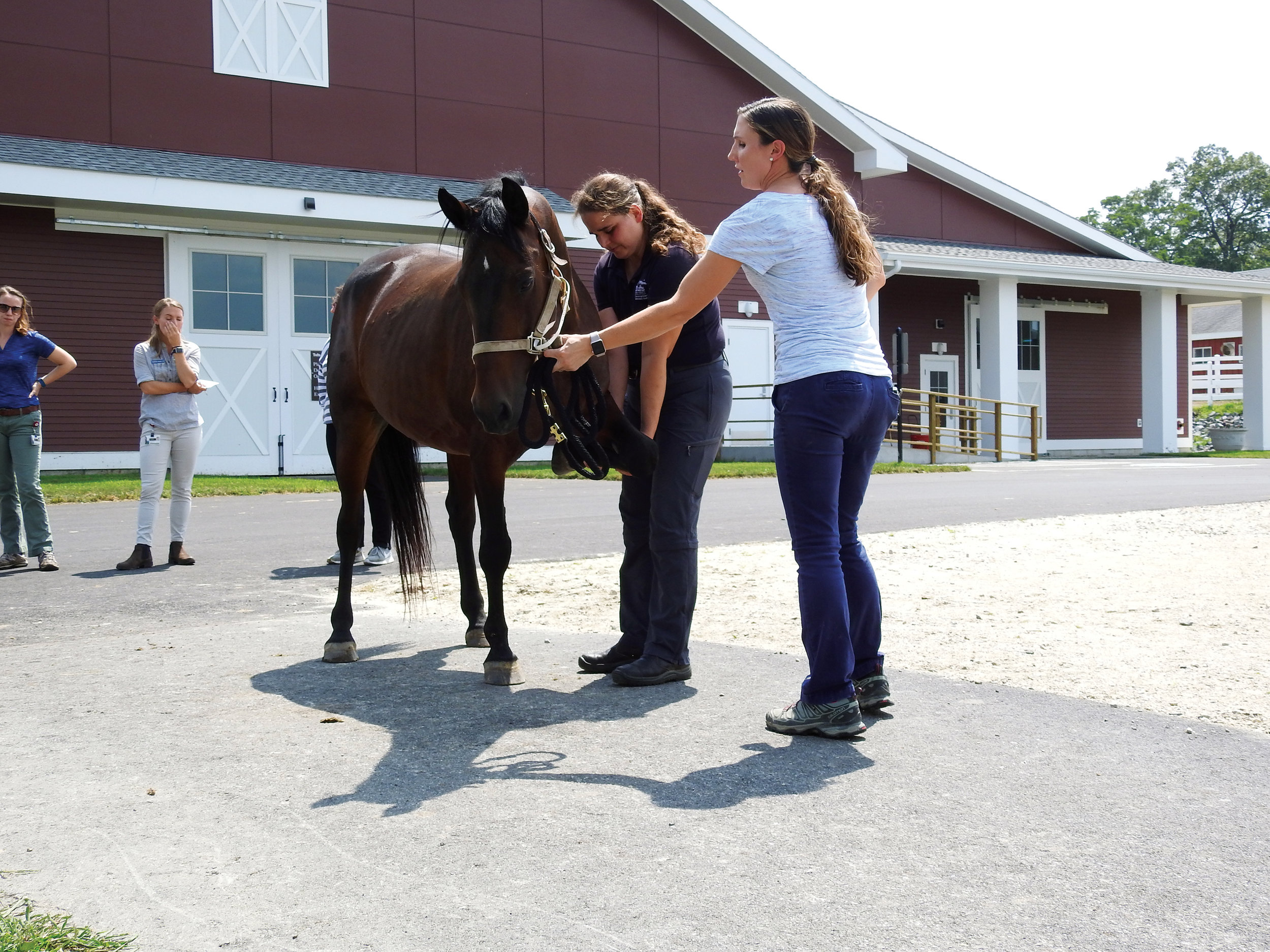Hospital for Large Animals at Tufts
Equine Sports Medicine Complex at the Cummings School of Veterinary Medicine at Tufts University
Some Foundation grants have sprung from Trustee knowledge of a specific field need or gap. The large animal isolation ward at the Cummings School of Veterinary Medicine at Tufts University is one such case.
Horses have factored into Sandy Niles’s life from the time she was 7 years old. A horse rider and owner, she now owns a horse farm and boarding facility. Over the years, she has relied upon the clinicians at Tufts for equine care, treatment and advice. Tufts (now called Cummings School) is the only large animal academic referral hospital in eastern Massachusetts, and the first place to go with horses in emergency. A philanthropic relationship took shape in the early 2000s, when Sandy engaged clinicians in a conversation about hard-to-meet needs.
The clinicians described the challenge of containing infectious diseases, which can spread quickly across a facility when it breaks out. It is vital for symptomatic animals to be isolated until the cause can be confirmed. This takes time and considerable effort with large animals.
When infectious disease moves through a ward, it must immediately be shut down. Without an isolation unit, the sick animal may have to be euthanized to avoid the risk of spreading the suspected disease. An adequate isolation ward, the clinicians posited, would enable them to more effectively manage these conditions, keeping the broader facility open to other animals in need of emergency care.
“The Manton Foundation doesn’t do things halfway.”
The school investigated what it would take to establish a state-of-the-art large animal isolation unit capable of providing exemplary care for horses and ample learning opportunities for Cummings School students. As the project took shape, the price tag rose. First projected at $2.25 million, the final cost was closer to $3.7 million. (Placing the facility in a learning hospital setting that is also a certified research facility required specific physical accommodations that were more costly but made Cummings School training even more valuable.) Both school and Foundation agreed that creating conditions for proper research and training today would accrue dividends in next-generation care. The Foundation urged the school to develop a facility plan that would address the needs of all constituents—human and equine—as well as the future sustainability of the facility itself.
Large Animal Isolation Ward at the Cummings School of Veterinary Medicine at Tufts University
Today, the Cummings School isolation ward offers top-notch conditions for horses and humans. Video cameras allow remote monitoring, full infection control features are in place and the facility meets standards for the research studies that are integral to an academic environment. Dr. Deborah Kochevar, dean of Cummings School, was struck by the intelligence of dialogue prompted by the trustees about the new facility. Manton trustees dug deep into the financial viability of the new ward, which would incur ongoing costs due to special air handling and containment requirements. To that end, the trustees earmarked $300,000 of the Foundation’s $3.7 million grant to defray operations costs over several years, giving Cummings time to build financial capacity to cover annual operations increases. Eight years after the facility opened, the school was fully covering those additional operations costs on its own.
Dr. Kochevar says the Manton Foundation has a keen ability to recognize a need and then jump-start or energize an initiative in a spirit of partnership toward shared success. “They ask smart questions and don’t let you off the hook if you don’t have a good answer,” she observed with appreciation. The Foundation’s intervention resulted in an improved facility for horses, students and clinical treatment, and the isolation ward ensured that the school met accreditation standards required by the American Veterinary Medical Association Council on Education.





